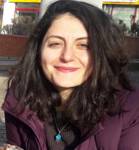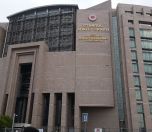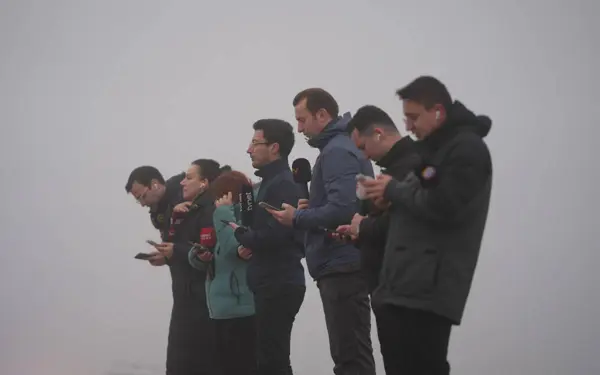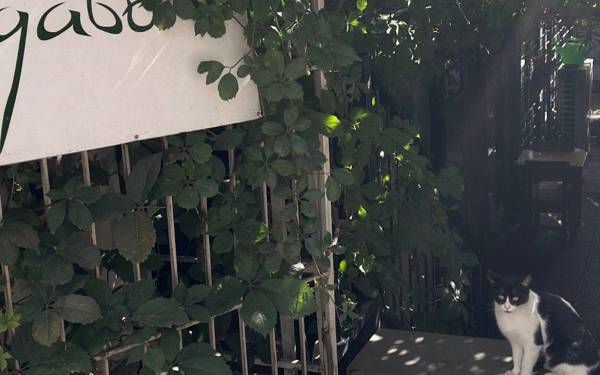* Infographic: Yağmur Karagöz
Click to read the article in Turkish / Kurdish
Turkey has entered 2021 with a crisis that might lead the Council of Europe to impose sanctions as President and ruling Justice and Development Party (AKP) Chair Recep Tayyip Erdoğan has declared Selahattin Demirtaş, the arrested former Co-Chair of the Peoples' Democratic Party (HDP), a "terrorist" and announced that he does not recognize the judgements of the European Court of Human Rights (ECtHR).
On the other side, with 144 thousand euro (approx. 1 million 397 thousand 200 lira) damages in total, the country has been faced with one of the heaviest sentences of "freedom of expression" in its history over the arbitrary arrest of former executives and employees of Cumhuriyet newspaper.
Controlling 90 percent of the national media industry, the government has authorized itself with appointing trustees to national and international foundations and associations while mounting the sanctions on social media platforms that do not appoint local representatives in compliance with its recently enacted social media law. Turkey, as a country with one of the most quickly functioning cycles for arresting journalists, ranks 154th in 180-country World Press Freedom Index of Reporters Without Borders (RSF).
Imprisonment for journalists
The BİA Media Monitoring Report covering the months of October, November and December 2020 has shown that at least 130 journalists were faced with the threat of 9 life sentences and 1,613 years in prison as per the Turkish Penal Code (TCK), Anti-Terror Law (TMK), National Intelligence Organization (MİT) Law, the Law on Banking Regulation and Supervision Agency (BDDK) and the Law on Capital Market (SPK).
Six of these journalists (Can Dündar, Ayşegül Doğan, Yılmaz Özdil and others) were sentenced to 52 years, 6 months and 25 days in prison in total. If the Court of Cassation upholds their sentences for "aiding the organization", the employees of Sözcü newspaper and the former executives and employees of Cumhuriyet newspaper might be faced with imprisonment again. As the Court of Cassation has recently upheld their sentences in the Zaman newspaper case, Ahmet Turan Alkan and İbrahim Karayeğen also face the danger of being sent to prison again.
However, imprisonment is not limited to prisons: Dozens of journalists or media representatives experience being "prisoners" with judicial control measures or passport bans, deferment of the pronouncement of the verdict or being forced to live in exile. Germany has announced that it will not extradite exiled journalist Can Dündar, who has been given a heavy prison sentence in the MİT trucks case.
Lastly, in Van, four journalists, including two reporters for Mezopotamya Agency (MA) and one reporter for Jinnews, have been arrested on charge of "organization membership" in a file with confidentiality order.
'Insulting president': 2 of 16 journalists penalized
From August 2014, when Erdoğan was elected President, to January 1, 2021, at least 63 journalists (including Ali Ergin Demirhan and Onur Emre Yağan) were given prison sentences, deferred prison sentences and judicial fines for "insulting the President" as per the Article 299 of the TCK.
Only in the period of October-November-December 2020, 16 journalists (Ahmet Sever, Can Ataklı, Ali Ergin Demirhan, Ayten Akgün, Onur Emre Yağan, Fatih Portakal, Rüstem Batum, Mustafa Sönmez, Necla Demir, Cem Şimşek, Erk Acarer, Hayko Bağdat, Oktay Candemir, Hakkı Boltan, Engin Korkmaz and Atilla Taş) faced 67 years, 8 months, 34 days in prison over their opinions and criticisms about the President.
While a new lawsuit was filed against Ali Ergin Demirthan, he was given a deferred prison sentence of 1 year, 2 months and 17 days in another lawsuit. Onur Emre Yağan was also sentenced to 1 year, 2 months and 17 days in prison. Can Ataklı and Necla Demir were acquitted. An ex officio investigation was launched against France-based Charlie Hebdo magazine on this charge. The conviction of Ahmet Altan was taken to the Court of Cassation.
8 detained: From street, hotel, courthouse...
In the period of October-November-December 2020, eight journalists were detained in Turkey; two of them were Russian reporters for the Russia-based NTV channel. It was alleged that the two journalists captured the images of an area where the R&D Center of the Uncrewed Aerial Vehicles was located without permission. In this period, Fatoş Erdoğan and Ufuk Çeri were taken into custody while covering protests or press statements.
Journalist Çağlar Tekin was detained at the courthouse where he went for a hearing and Murat İde, a columnist for Yeniçağ newspaper, was detained from the hotel where he was staying in Giresun province. They were both released after giving their statements about their previously published articles. Taken into custody in Ankara, Hamdullah Bayram from Yeni Yaşam newspaper was charged with "resisting the police." Ayşenur Aslan was summoned to depose with a written notification sent to her house.
Multiple threats: Çakıcı, Soylu, social media
In the last three months of 2020, journalists were threatened by Minister of Interior Süleyman Soylu, by crime group leader Alaattin Çakıcı and by a social media account called "Jitemci.turkeyy" [referring to an agency allegedly responsible for enforced disappearances in southeast Turkey in the 1990s]. While Çakıcı targeted the arrested journalists in a letter, Soylu targeted journalist Barış Terkoğlu and "Jitemci.turkeyy" account targeted Evrensel newspaper's Diyarbakır reporter Fırat Topal on social media.
Subjected to a verbal attack online, journalist Özlem Gürses exposed these accounts. In Osmangazi district in Bursa, a person attacked Demirören News Agency (DHA) reporter Mehmet İnan and broke his nose while the latter was covering the row of citizens who violated the COVID-19 curfew with the neighborhood guard. The "on-call protection order" issued for journalists Barış Terkoğlu and Barış Pehlivan was lifted.
In the last three months of 2019, nine journalists, four in the military operation zone, were attacked. While one journalist was subjected to police violence while covering the horse-driven carriage crisis in Büyükada, one of the Princes' Islands in İstanbul, the attacks in Ankara, Konya and Iğdır showed that the spiral of violence targeting local journalists was still in place.
Censorship on 485 online news articles, one broadcast ban
In the October-November-December period, access to at least 485 links to news about topics such as corruption, favoritism, irregularities, drug trafficking, sexual abuse and spoils system was blocked. As much as Sözcü, Cumhuriyet, BirGün, Deutsche Welle websites, media organizations such as the pro-government Milli Gazete were also affected by censorship. While a broadcast and publishing ban was issued regarding the allegations that two people were thrown from a helicopter in Van, Olay TV was shut down because of pressures coming from government circles or discontent of Cavit Çağlar, its investor, about its broadcasts.
The Press Advertisement Institution and its inspectors are on duty
In the October-November- December period, the Press Advertisement Institution (BİK) issued a fine of ad cuts for 23 days to the critical BirGün newspaper. In this period, it was decided that 28 of the 45 days of ad cuts for Cumhuriyet should be applied. Ads on Sözcü newspaper and Korkusuz, which is a newspaper of the same group, were cut for 10 days each. Tax inspectors fined the Odatv site a total of 371 thousand lira.
Lawsuits for insult and compensation claims
In the past three months, at least 33 journalists faced a total of 75 years and 6 months in prison in the cases filed for "insult." Six journalists (Ender İmrek, Uğur Koç, Mustafa Kömüş, İbrahim Aydın, Uğur Güç ve Hazal Ocak) were acquitted in the cases in which they were tried for "insult."
In the same period, eight journalists faced paying 1 million 310 thousand lira and five media outlets faced to pay 275,000 lira in compensation.
A ruling of partial compensation was given against Evrensel newspaper columnist Özcan Yaman. Compensation claims of 10 thousand lira against former Cumhuriyet newspaper reporter Pelin Ünker and then-board chair of the Cumhuriyet Foundation, Orhan Erinç, were rejected. The Demirören Media Group filed claims for damages against five different news websites, demanding 275 thousand lira in total. President Erdoğan's son-in-law Selçuk Bayraktar sued journalist and economist Mustafa Sönmez, demanding 100,000 lira in compensation. Suits for damages against Alev Coşkun, Hazal Ocak, Çiğdem Toker and Ceren Sözeri continued.
Impunity and seeking legal remedies
The case of the murder of Saudi journalist Jamal Khashoggi, who was killed by Saudi Arabia in its İstanbul Consulate, continues rapidly in İstanbul. On the other hand, the case of the murder of Hrant Dink, which has been going on for 14 years, is wanted to be completed quickly without hearing the National Intelligence Officers (MİT) who threatened Dink and without extending the investigation. Like the case of think, the case of Musa Anter, which has been going on for 28 years, continues slowly.
In the October-November-December 2020 period, the threats against journalist Fırat Topal on social media were brought to the court. Aydın Engin, a journalist for 51 years, filed a suit against the Presidency Communications Directorate because it did not give his press card to him without stating any reasons. Seven judges and prosecutors who arrested Ahmet Şık for his book "The Army of the Imam" are still on trial for "misconduct" and "restricting freedom." The bombing of Özgür Ülke newspaper was not punished in its 26th year.
RTÜK penalties
After the Radio and Television Supreme Council (RTÜK)'s suspended a program on Habertürk TV for five episodes and imposed the maximum monetary penalty against it, the council's impartiality and political decisions were once again questioned.
In the October-November-December 2020 period, RTÜK imposed 110 administrative fines and 16 broadcast suspension fines and issued one warning on TV outlets. The total amount of fines on television outlets reached 6 million 419 thousand 413 lira. Radyo Harman was given two broadcast suspension bans and 2,957 lira of administrative fines.
187 journalists lost their jobs
In the October-November-December 2020 period, at least 187 media employees became unemployed as a result of pressures by the government on media outlets or interference with reporting and thoughts. With the closure of Olay TV after 26 days, its 180 employees were put into uncertainty.
Journalist Gürkan Hacır announced that the "Şimdiki Zaman Siyaset" program on Halk TV was canceled despite drawing interest. Enver Aysever announced that he parted ways with Halk TV. Former AKP deputy Mehmet Metiner left Star newspaper, for which he wrote twice a week, after his articles were not published for two weeks.
(EÖ-SA/NÖ/SD-VK)






.jpg)
-132.jpg)

.jpg)





